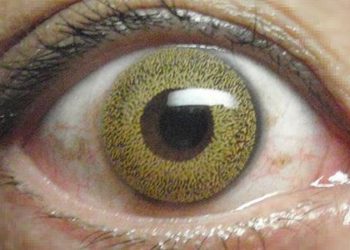Dose-escalated simultaneous integrated boost radiotherapy may increase ipsilateral breast tumor relapse rates
1. 5-year ipsilateral breast tumor relapse rates for test group 1 were non-inferior to the control group. However, noninferiority was not shown with test group 2 versus control.
2. Test group 2 was found to have a higher rate of moderate or marked breast induration compared to the control group and test group 1.
Evidence Rating Level: 1 (Excellent)
Study Rundown: In women with invasive breast cancer, breast-conserving surgery followed by whole-breast radiotherapy has been shown to almost halve the risk of breast tumor relapse. Previous studies suggest that targeted radiotherapy to the tumor bed may reduce rates of recurrence while sparing surrounding breast tissue. However, the benefit of simultaneous integrated boost radiotherapy (SIR) on breast tumor relapse remains unclear. This randomized controlled trial aimed to assess the safety and efficacy of integrated and sequential radiotherapy boost in the treatment of women with invasive breast carcinoma. The primary outcome was ipsilateral breast tumor relapse (IBTR) at 5 years post-randomization, while key secondary outcomes included the location of local tumor relapse and time to first regional relapse. According to study results, 5-year IBTR incidence was lower than expected in all groups regardless of boost sequencing. 5-year IBTR was non-inferior between the control group and test group 1; however, test group 2 was associated with increased relapse rates and breast induration compared to the control group. This study was strengthened by a randomized design that tested the association of radiotherapy boost on patients with different hormone receptors, thus adding to its validity.
Click to read the study in The Lancet
Relevant Reading: Breast-Conserving Surgery with or without Irradiation in Early Breast Cancer
In-depth [randomized-controlled trial]: Between Mar 4, 2009, and Sept 16, 2015, 2621 patients were screened for eligibility across multiple radiotherapy and referral centers in the UK. Included were women ≥ 18 years receiving breast-conserving surgery for invasive adenocarcinoma (T1-3, pN0-3a, M0) with clear microscopic margins. The control group received 40 Gy in 15 fractions to the whole breast followed by 16 Gy in 8 fractions to the tumor bed. Test groups 1 and 2 both received 36 Gy in 15 fractions to the whole breast followed by 40 Gy in 15 fractions to the partial breast. In contrast, test group 1 received 48 Gy in 15 fractions and test group 2 (dose-escalated) received 53 Gy in 15 fractions to the tumor beds. The primary outcome of 5-year IBTR incidence was greatest in test group 2 (3.2%, 95% confidence interval [CI] 2.2-4.7), followed by test group 1 (2.0%, 95% CI 1.2-3.2), and the control group (1.9%, 95% CI 1.2-3.1). Test group 1 was non-inferior to the control group at 48 Gy. The majority of adverse events were mild to moderate with breast induration being greatest in group 2 (15.5%, p=0.015 vs control) and lowest in group 1 (10.6% vs. 11.5%, in the control group; p=0.40). Overall, dose-escalated SIR (test group 2) was found to have higher rates of relapse and marked break induration. However, test group 1 was non-inferior to the control group with regards to IBTR and breast induration.
Image: PD
©2023 2 Minute Medicine, Inc. All rights reserved. No works may be reproduced without expressed written consent from 2 Minute Medicine, Inc. Inquire about licensing here. No article should be construed as medical advice and is not intended as such by the authors or by 2 Minute Medicine, Inc.



![2MM: AI Roundup- AI Cancer Test, Smarter Hospitals, Faster Drug Discovery, and Mental Health Tech [May 2nd, 2025]](https://www.2minutemedicine.com/wp-content/uploads/2025/05/Untitled-design-350x250.png)





